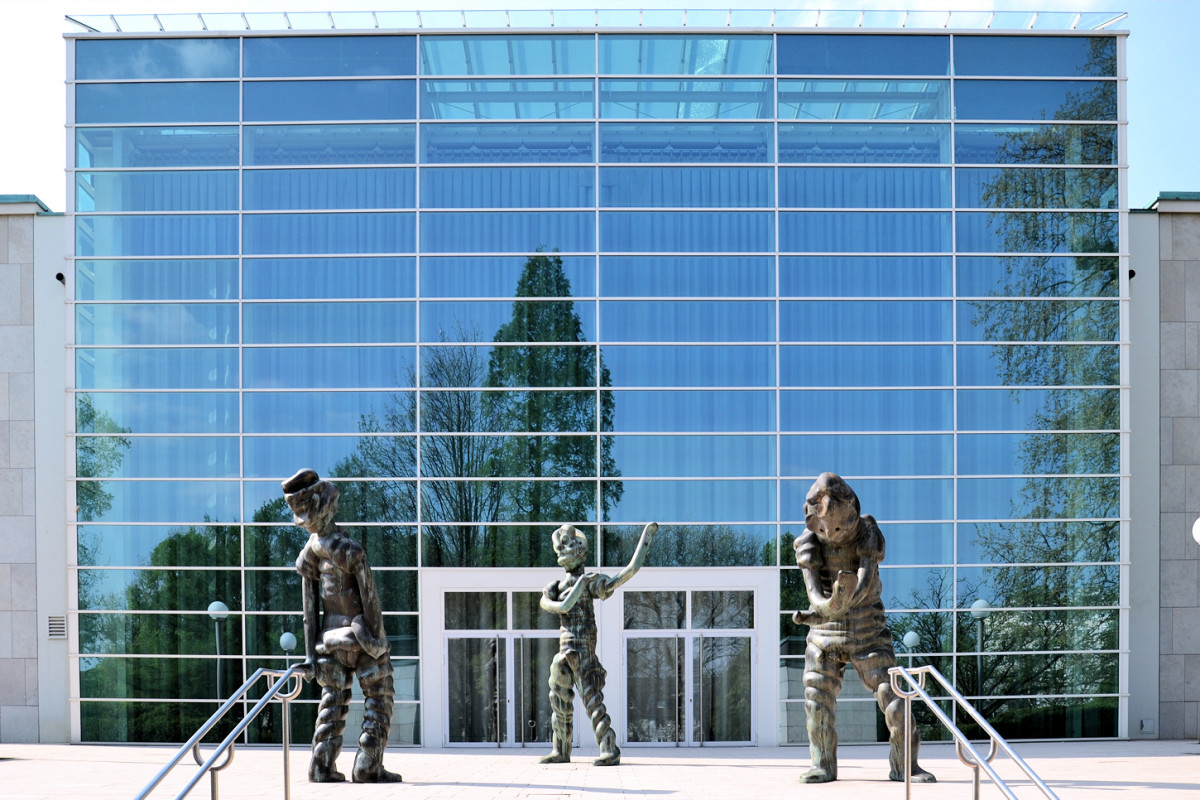Art World
Thomas Schütte Sculpture Beheaded During Removal
Ironically, the removal was meant to protect the artworks.
Ironically, the removal was meant to protect the artworks.
Henri Neuendorf

http://instagram.com/p/4kOOffTZuo/?tagged=thomasschütte
A four meter (13.1 ft) outdoor bronze sculpture by Thomas Schütte was decapitated while being removed from its place outside of the Philharmonic Hall in Essen, Germany.
The sculpture is part of a three-piece artwork called Ganz grosse Geister (1998-2004) which has been on display outside the Philharmonic Hall since 2004.
Ironically, the artwork’s owner—collector Thomas Olbricht—ordered the removal to prevent the valuable artwork from being damaged.
On February 18, workmen attached a strap around the sculpture’s head in attempt to raise the massive figure from its base. At this point the welding gave way and the head tumbled to the ground. The sculpture remained firmly in place, and was finally removed after a second attempt.

Thomas Schütte Drei große Geister (1998-2004)
Photo: Wikimedia Commons
Citing reports by the German press agency DPA, Monopol writes that Schütte expressed his bafflement at the removal. He called Olbricht’s concerns over potential damage “incomprehensible,” due to the statues weighing several tonnes.
“The base and anchors were glued when the statue was erected 10 years ago, so you can only lift them out with force,” Schütte said.
The sculptor reacted calmly to news of the damage. “It can be rewelded,” he said. “It it’s not destroyed, just damaged.”
The group of sculptures has been on long-term loan from Olbricht since the opening of the Essen Philharmonic Hall in 2004.
When the removal was announced in February, the head of cultural affairs of the city of Essen, Andreas Bomheuer, said in a statement, “We have done everything in our power to protect the artwork. It was highly insured and was watched by the security service of the Essen Philharmonic.” However, he conceded, “In the long term such a work cannot be insured and protected in the public space,” and thanked the collector for the loan.
Olbricht added that he regrets having to carry out the removal but explained that it was unavoidable, arguing that “No one can rule out entirely that this great work of art won’t be damaged in the future.” As it turns out, he was right.